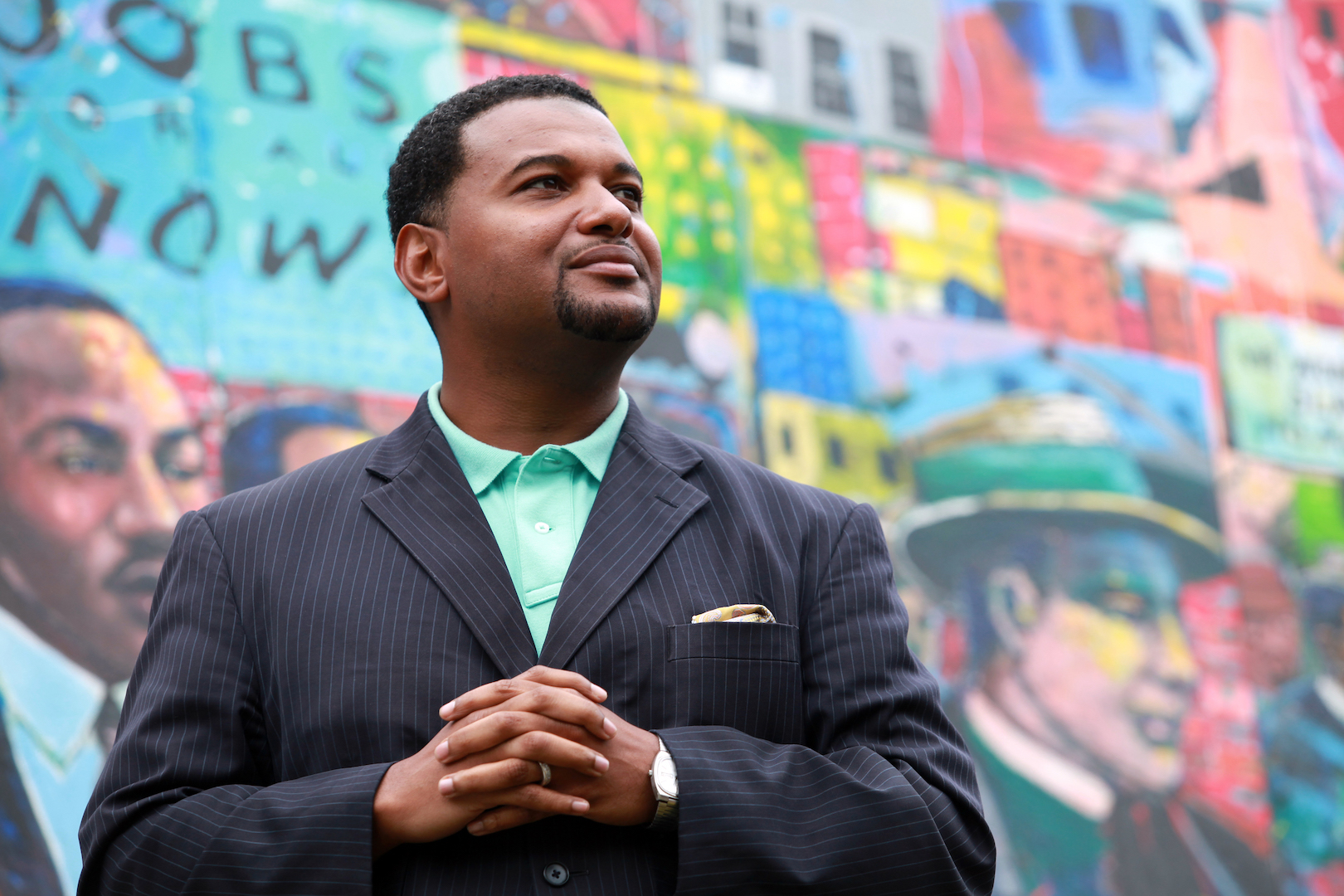
Nathaniel Smith, and his fight for racial equity in the South
Nathaniel Smith is one of the first recipients of the Neighborhood Builders: Racial Equality Award and the founder and CEO of the Partnership of Southern Equity
While he was growing up, Nathaniel Smith’s parents were involved in the Southern Christian Leadership Conference and worked alongside Dr. Martin Luther King Jr. So it should come as no surprise that the Atlanta native is the founder and CEO of Partnership for Southern Equity (PSE), a nonprofit focused on racial equity in Georgia and the American South, in his adulthood.
Smith is one of the first five winners of Bank of America’s Neighborhood Builders: Racial Equality Award. When asked what receiving this award meant to himself and his organization Smith said, “to have a platform where we’re able to be elevated for the work that we do — and unfortunately, Southern work is not elevated as much I would say as other places around the country — [And] so it makes me feel good to be able to not just represent PSE with this accomplishment, but also the work that other people are doing around the South to advance racial equity.”
The desire to help his community was further shaped when he attended Morehouse College, a historically Black college in Atlanta. While there, he received his Bachelor’s degree in Urban Studies. Smith later went on to receive a Master’s in Urban Policy and Analysis from the New School in New York City.
After working in academia and nonprofits, Smith decided to create Partnership for Southern Equity in 2010 because he saw that there weren’t a lot of institutional spaces that addressed the issues of systemic racism and inequity in the South. Smith describes the nonprofit as “a multi-issue organization that [really] focuses on [what we call] a new Southern agenda for racial equity and shared prosperity.”
He added, “So for us, it's really about looking at the areas of economy, climate, health, and growth, through the lens of racial equity, and really trying our best through community engagement and research and leadership development and other tactics to really move the needle in ways that will remove race as a barrier to a community and an individual's ability to reach their full potential.”
These areas, he explains, will affect communities of color the most and if communities aren’t aligned with the shifts in these areas, they will be left behind. He reasons that this will not only be detrimental to said communities, but to the country as a whole since people of color are becoming the majority.
“I believe that the destiny of our nation, in many ways hinges on our ability to be as inclusive and as just as we can to our most vulnerable. So for us, equity is good for business, equity is good for health, equity is good for our climate and all of the other things that we care about,” Smith said.
RELATED CONTENT
PSE is currently operating in Georgia, North Carolina, Mississippi, Tennessee, and Florida, with hopes to expand its reach in the near future. It has recently acquired several organizations that will help with this goal. This includes Youth Empowerment Solutions (renamed YES! For Equity) and EcoDistricts. Both are national organizations that Smith hopes will put PSE on a more national stage.
PSE has also started an initiative with four other organizations called the Justice40 Accelerator. This initiative helps organizations run by communities of color reap the benefits of President Joe Biden’s Justice 40 executive order. This order made it so that 40% of Federal investment benefits in clean energy and climate go to disinvested communities. This initiative is currently supporting 52 organizations.
Smith has two hopes for the future of his organization.
One is that he wants his organization to be discussed in barbershops in the way they talk about the “great leaders of the past.” He wants people to discuss all PSE has done for their community while also talking about the work they’re doing at the present time.
He also wants the organization to “grow in ways that will allow us to be effective and impactful in the places that we’ve chosen to engage.”
The organization has already had many great impacts on the communities it serves. In Atlanta, the organization worked with community members and got a transportation referendum of $13 million passed. This will expand Atlanta’s metro system, which hasn’t been done in over 40 years. They have also trained around 400 people through their leadership development programs.











LEAVE A COMMENT: